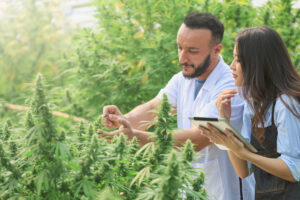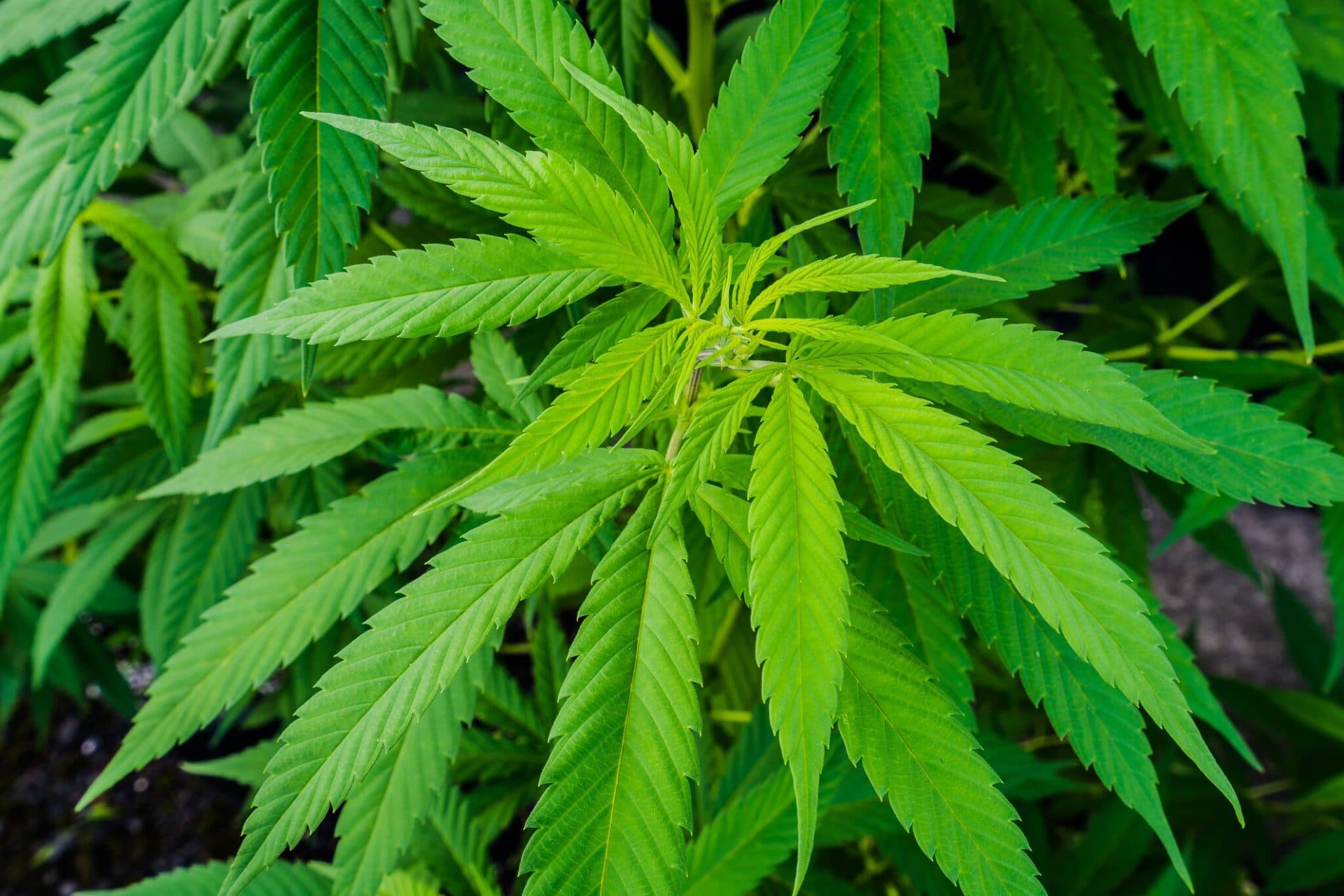
Industrial hemp is a type of cannabis plant that has a low concentration of THC (Delta-9 tetrahydrocannabinol). Because it contains so little THC, industrial hemp is legal to grow in many states. It’s also been legalized by federal law since 2014 in the United States. Industrial hemp is used for many different things including food and fuel due to its fast growth rate and ability to be cultivated on large areas of land.
What is Industrial Hemp?
Industrial hemp includes cannabis plants, and parts of the plant, of any variety, that contains 0.3 per cent tetrahydrocannabinol (THC) or less in the leaves and flowering heads. While it cannot contain more than 0.3 per cent THC, there is no limit to the amount of cannabidiol (CBD) that may be contained in industrial hemp plants.
Industrial hemp also includes the derivatives of industrial hemp plants and plant parts (not including the flowering parts or the leaves). In Canada, industrial hemp is regulated under the Industrial Hemp Regulations, which is a set of rules that fall under the Cannabis Act.
The 2014 Farm Bill fully legalized the cultivation of hemp under federal guidelines:
- The 2014 Farm Bill was signed into law on February 7, 2014
- the Farm Bill allowed states to grow industrial hemp for research purposes
- the Farm Bill requires that the hemp be grown under a state agricultural pilot program
- the Farm Bill allows universities and state departments of agriculture to grow industrial hemp
The 2018 Farm Act legalized industrial hemp. Farmers can grow it without receiving federal permission, so long as they follow state regulations and obey certain restrictions on their crop size. The 2014 Farm Bill legalized industrial hemp under federal guidelines, which allowed farmers to plant it without obtaining a permit from the DEA.
Industrial hemp is one of the fastest-growing industries in America.
- Industrial hemp is a rapidly growing industry
- It is a great opportunity for farmers
- It is a good source of income for farmers
- It is a good source of employment for people in the industry
Industrial Hemp Regulations:
The Industrial Hemp Regulations establish a licensing scheme, as well as set out a general control framework for most activities, such as its cultivation, production, and sale. An industrial hemp licence holder can cultivate hemp to produce a number of different products.
For example, fiber from industrial hemp stalks can be used in making paper, textiles, rope or twine, and construction materials. Grain from industrial hemp can be used in food products, cosmetics, plastics, and fuel. Additionally, licence holders may cultivate hemp and then sell non-viable seeds, or hemp seed derivatives, for use in food, cosmetics, etc. Non-viable hemp seeds and hemp seed derivatives (like hemp seed oil) that contain no more than 10 ug/g THC after testing (also sometimes expressed as no more than 10 parts per million, or 10 ppm) are exempt from the Cannabis Act.
What is and who can be an Industrial Hemp producer?
A hemp producer is also able to cultivate hemp for the flowering heads, branches, and leaves, which may contain CBD. However, it’s important to note that not every activity involving industrial hemp will fall within the scope of the Industrial Hemp Regulations.
A good example is the extraction of CBD or another phytocannabinoid from the flowering heads, leaves, and branches of the plant. This would fall under the Cannabis Regulations and would require a cannabis processing licence. Alternatively, industrial hemp licence holders can choose to sell the flowering heads, branches, and leaves they cultivate to a cannabis processor licensed under the Cannabis Regulations, who may then extract the CBD under their licence.
Farming industrial hemp is a way for farmers to earn an income.
Industrial hemp is a type of cannabis plant that has a low concentration of THC (Delta-9 tetrahydrocannabinol). Because it contains so little THC, industrial hemp is legal to grow in many states. It’s also been legalized by federal law since 2014 in the United States. Industrial hemp is used for many different things including food and fuel due to its fast growth rate and ability to be cultivated on large areas of land.
What are the benefits of Industrial Hemp?
- Industrial hemp is a cannabis plant that has low levels of THC
- industrial hemp is used for fiber, food, and fuel
- industrial hemp is used in construction materials
- industrial hemp is used in textiles
- industrial hemp is used in biofuel
Industrial hemp can be processed into products like cotton, textiles, and construction materials:
Industrial Hemp can be processed into products like cotton, textiles, and construction materials. The hemp plant can also be used to make rope, paper, and biofuel.
Requirements of Industrial Hemp under the Cannabis Act:
In addition to the requirements of the Cannabis Act, you may be subject to other legal requirements, depending on the activities you plan to conduct with hemp. For example, activities of seed production, importation of seed, preparation (conditioning) of seed, and plant breeding/propagation have additional requirements that must be fulfilled under the Seeds Regulations:
- Seed production: must be a member of the Canadian Seed Growers’ Association and adhere to their requirements for pedigreed seed production.
- Seed importation: the establishment at which seed will be imported to has a valid Certification of Registration as an Authorized Importer issued under Part IV of the Seeds Regulations.
- Seed preparation (conditioning): establishment at which the conditioning of seed will take place has a valid Certification of Registration as an Approved Conditioner issued under Part IV of the Seeds Regulations.
- Plant breeding/propagation: must be recognized by the Canadian Seed Growers’ Association as a plant breeder.
So, there you have it – everything you need to know about industrial hemp in Canada!
Remember, anyone wishing to cultivate industrial hemp is required to obtain a licence from Health Canada. Contact us today to discover how we can license and legalize your industrial hemp business to meet federal or provincial regulations.
How Cannabis License Experts can help you:
Hemp is a great product that can help the agricultural industry and our environment. It’s a shame that it has such a bad reputation, but hopefully, this will change as more research is done on industrial hemp and its benefits.
At Cannabis License Experts, we provide you with the guidance to plan your cannabis and/or industrial hemp business, secure funding, navigate the legal requirements, and acquire the appropriate licence for your operations. As the Canadian cannabis industry develops, more and more licensed producers will be needed to meet the demands of consumers.
Cannabis License Experts offers support from day one of starting your cannabis business, including strategic planning, floor plan preparation, site audits, Standard Operating Procedures (SOPs), Preventive Control Plans (PCPs), and more.
Our Edibles Compliance division can provide you with a solid plan for your edibles business to help get your products on store shelves.
Resources


